10, April 2019
Open Letter to Chief V. E. Mukete 0
Your Royal Highness,
In 1990, the founding National Vice President of the CPDM party, Dr. John Ngu Foncha resigned from the party, citing some of the issues you are now complaining about.
By remaining inside that party, did you hope to correct those wrongs or did you consider that John Ngu Foncha was just a nuisance and ought to be dispensed with? In 1993 both John Ngu Foncha and S. T. Muna, who are considered as the fathers of the nation used the opportunity of AAC1 to offer their apologies to the people of Southern Cameroons for having driven them into an unfortunate marriage with a barbaric people.
Since you say you are like them because you fought for reunification, do you think that what you said in the upper house of parliament on 9th April 2019 is enough to atone for the killings and burning of villages under your jurisdiction as paramount traditional ruler, by the army of Mr. Paul Biya who recruits and pays you? In June/July 2017, Dr. Simon Munzu spent a week in Yaoundé, plying all Anglophone MPs and Senators (after he had travelled the entire North West and South West appealing to all traditional rulers) to form a delegation and seek audience with Mr. Paul Biya to request that he convene a national dialogue.
How did you receive Munzu’s advocacy and how did you react? Did you even summon a meeting to consider his plea or you just ignored him the way your younger brother and employer, Mr. Paul Biya has treated Anglophones with spite and disdain, beginning from John Ngu Foncha to that grandmother whom his army burnt in her house in Kwa Kwa and that child whom he sent his army to wake him up from sleep at 5a.m and shoot him dead in Batibo?
Well, your Highness, it seems to me that after publishing a well written book in 2014 which recounts the history of this country, you feel like you have still not done enough by way of legacy and you thought by that outburst in senate in Wirba-like fashion you are doing something to be remembered by.
I think that the reception which that drama you put up got from the Anglophone public tells you there is more you can do if you don’t want people to attend your funeral only to grab what they can.
You have two options: either you apologize to us and immediately resign from that moribund house of ghosts called senate, and also pull out of that masquerade called CPDM, or you form a delegation of about fifty Anglophones, including Musonge, Achidi Achu and all the others of that ilk, to take up permanent position in front of that house where Paul Biya works and stay there until he convenes a national dialogue as the international community has demanded of him.
I can bet you my life that if you do this, all the people of Southern Cameroon in Yaounde will join you there and even if you die in that action, you will be better immortalized.
What you did in senate recently was just a lame aping of the Wirba phenomenon and was quickly ignored.
Atemkeng in Madrid, Spain
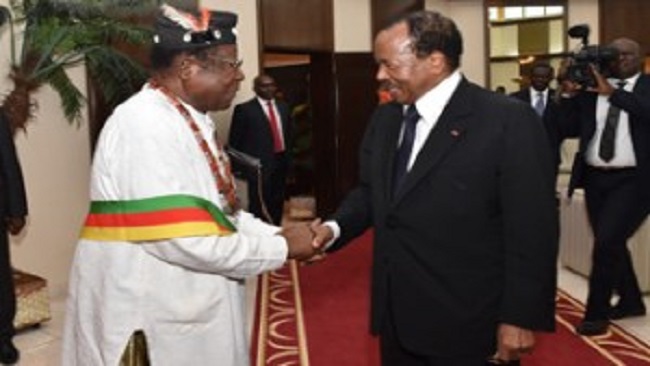





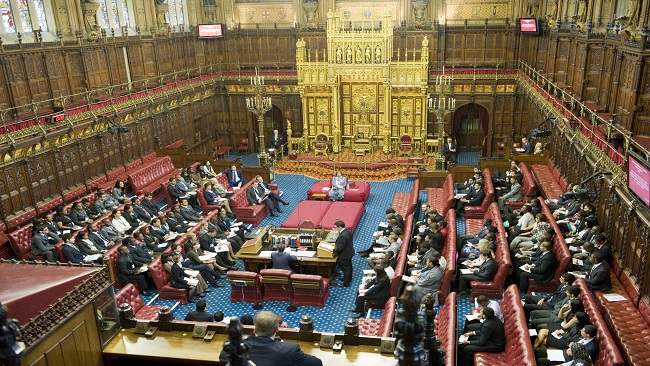

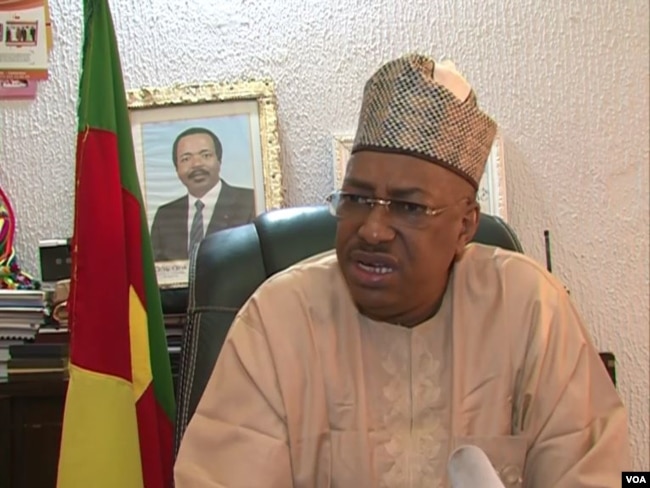
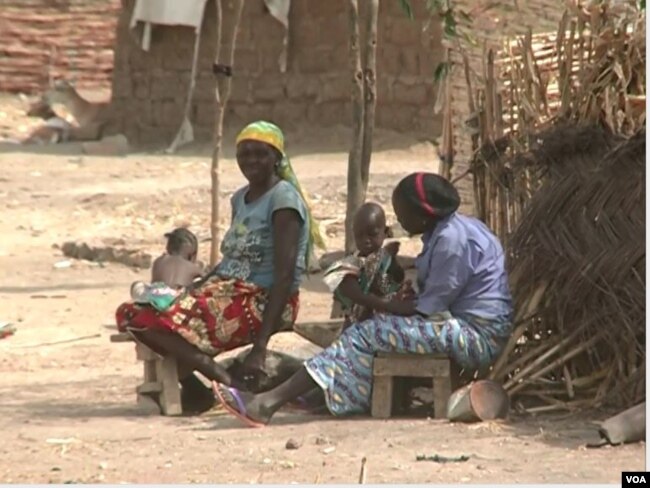
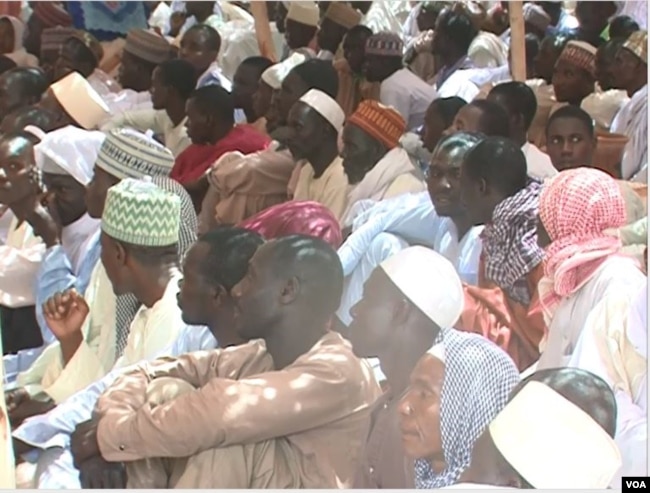
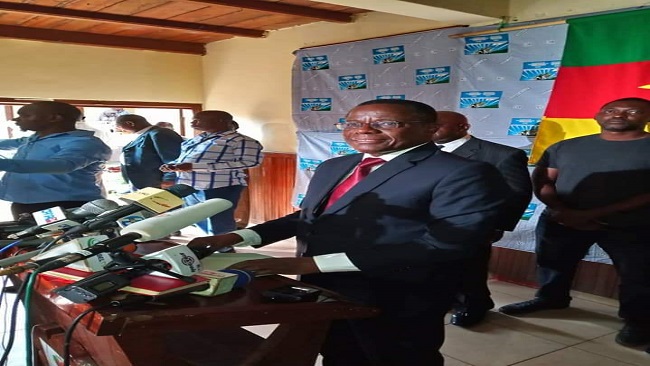
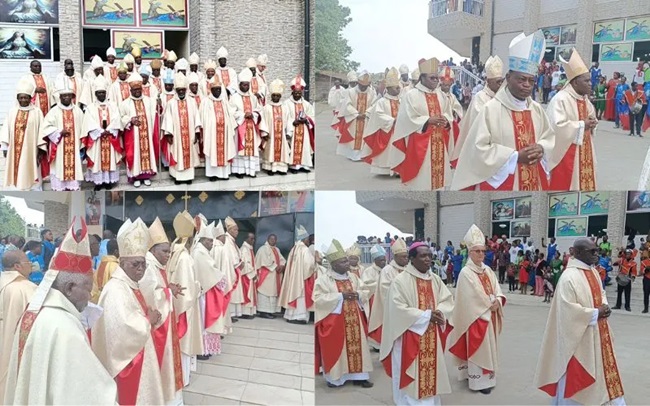














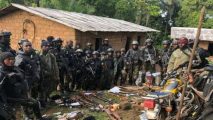


10, April 2019
Southern Cameroons Crisis: New HRW Report Indicts Government Forces 0
Human Rights Watch (HRW), the global human rights watchdog, has investigated murders in many Cameroonian villages in the country’s northwest region. The report published in the Kenyan capital, Nairobi, has accused Cameroonian soldiers, gendarmes, and members of the Rapid Intervention Brigade (BIR) of carrying out a deadly attack on the North-West region village of Meluf on April 4, 2019.
The report points out that Government forces killed five civilian men, including one with a mental disability, and wounded one woman. Three of the bodies were later found mutilated, including one that had been decapitated.
The report says further attacks could occur if government forces are not reined in. The authorities should investigate members of the security forces alleged to have carried out these killings, and prosecute those responsible. The attack on Meluf occurred as violence by the security forces in and around health centers and against medical workers in the North-West is increasing.
“Government forces are committing abuses against people living in the Anglophone areas of Cameroon,” said Lewis Mudge, Central Africa director at Human Rights Watch. “Cameroon’s civilian and military authorities should make it clear that these types of abuses will not be tolerated and hold commanders responsible,” he added.
Based on interviews with 10 witnesses and residents and reviews of video and photographic sources, Human Rights Watch found that the victims were either executed or shot as they attempted to flee when the security forces raided their neighborhood, located near an armed separatists’ camp.
One resident of Meluf, a 45-year-old man, said that soldiers broke into his house, shot his aunt, and killed his uncle. “We woke up to the sound of guns. A soldier broke the window, and asked my aunt where the Amba boys [separatists] were hiding. She told him that she didn’t know, so he shot her in the right arm,” he said.
Multiple witnesses said that the security forces entered Meluf on foot, and later with military vehicles, including one armored car with a machine gun mounted on top, at least three military trucks and a bulldozer. The forces forcibly entered at least 80 homes in Meluf, looted some, and burned down seven.
“They used the bulldozer to open the road, which had been blocked with trees, and they shot in all directions,” one witness said. “Some [security forces] were shooting from their vehicles, others were on foot. More than 60 soldiers came.”
Relatives of victims and residents who participated in the victims’ burial said that three bodies were found desecrated. A teacher from Meluf who attended the burial ceremony of the man whose body was found beheaded said that “We proceeded with the burial of the body because we could not find the head, as it had been dumped elsewhere. After the burial, the head was found in the nearby area of Ngoonjo. So, residents picked it up, went back to the grave, dug another hole and buried it.”
He added that “the genitals were cut off of two of the victims’ bodies. A relative of the men said that he found the victims dead and lying on the floor of their home, their hands tied up and their bodies mutilated. Residents said the mutilation of dead civilians has been traumatizing for the community.”
Meluf was also the target of a December 5, 2018 attack, when the army killed seven people, including a 70-year-old man with a hearing impairment who was burned inside his neighbor’s home. Dozens of homes were destroyed in that attack.
Meluf was not the only village in the North-West region to be attacked in recent weeks. Security forces attacked Noi village on March 25, burning and looting eight homes.
The attack on Meluf comes as violence by state security forces in and around health facilities and against medical staff is increasing in the North-West region.
In the early morning of April 1, soldiers and gendarmes carried out an operation in a residential area on the grounds of the Mbingo Baptist Hospital. They killed a 32-year-old mother of three and shot another man while searching for separatists. The woman had tried to warn people that soldiers were coming. “She was shot at close range,” a witness said. “She was shot in the back and bled to death because we could not take her over to the hospital itself.”
On March 27, security forces took their casualties to the same hospital for treatment after clashes with separatists. Witnesses said that a soldier fired several shots inside the hospital, between the women’s ward and the staff room, forcing staff to abandon patients.
On March 21, soldiers entered the Wainamah health center in search of wounded separatists. They accused a motorbike driver waiting outside for a patient of being a separatist. Witnesses said that security forces shot him dead on the main road. A nurse said that the soldiers forced the driver to undress and shot him four times.
Five medical professionals working in several health facilities in the North-West region said that the number of people seeking care at the hospitals has dropped drastically over roughly the last six months because patients don’t feel safe. “Patients prefer to die at home,” a doctor from Kumbo said.
Earlier this year, Human Rights Watch documented the killing of a pregnant nurse, and three attacks by security forces on health facilities in Kumbo, North-West region.
Security force violence directed against medical facilities and health workers is emerging as a worrying trend in the Anglophone regions, one that risks depriving the population of health services when they need them the most, Human Rights Watch said.
“The Cameroonian government’s failure to hold its security forces to account has only encouraged abusive units to commit more crimes,” Mudge said. “Government forces need to respect basic human rights, and stop targeting civilians.”
Culled from HRW with comments from Linda Embi